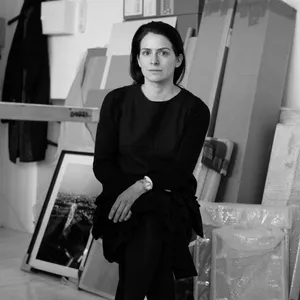
Empty Rooms
About artwork
Provenance
Tech info
About
The camera eats into nothingness, it glides along an empty surface whose rough grain resembles minimalistic interplay of shapes and forms and material analyses that refer the spectators back to themselves. After a while the white wall which represented the initial focus is joined by a long hallway with doors, and after that high, spacious empty rooms enter the picture. The scene is reminiscent of abandoned underground bunkers or spaces in an industrial warehouse or workshop, spaces that do not have an obvious use, non-places whose utilitarian architecture Larcher examines as if they were monuments to their presumably simple economic purpose. With the aid of the finely structured, at times whooshing soundtrack by Constantin Popp, Larcher creates an uncanny mood, though at the same time she goes beyond representation of the weirdly whooshing emptiness and breathes life into these spaces, isolating certain elements and making the walls dance. The rooms and the objects they contain, such as lighting fixtures, assume the direction until the scene quiets down and a glaring white zero space is eventually created, a kind of idealized white cube that Larcher lines with the white wall elements visible at the beginning in accordance with its new — or possibly old after all — purpose. In Empty Rooms Larcher propels the impressive game which emerges in her other works by means of memories stored in rooms and their emotionally evocative qualities. This tends to make us believe the idea that objects are living beings, which has received an increasing amount of consideration, and serves as a reminder of history’s aftereffects that cannot be suppressed. (text by Sandro Droschl)






























